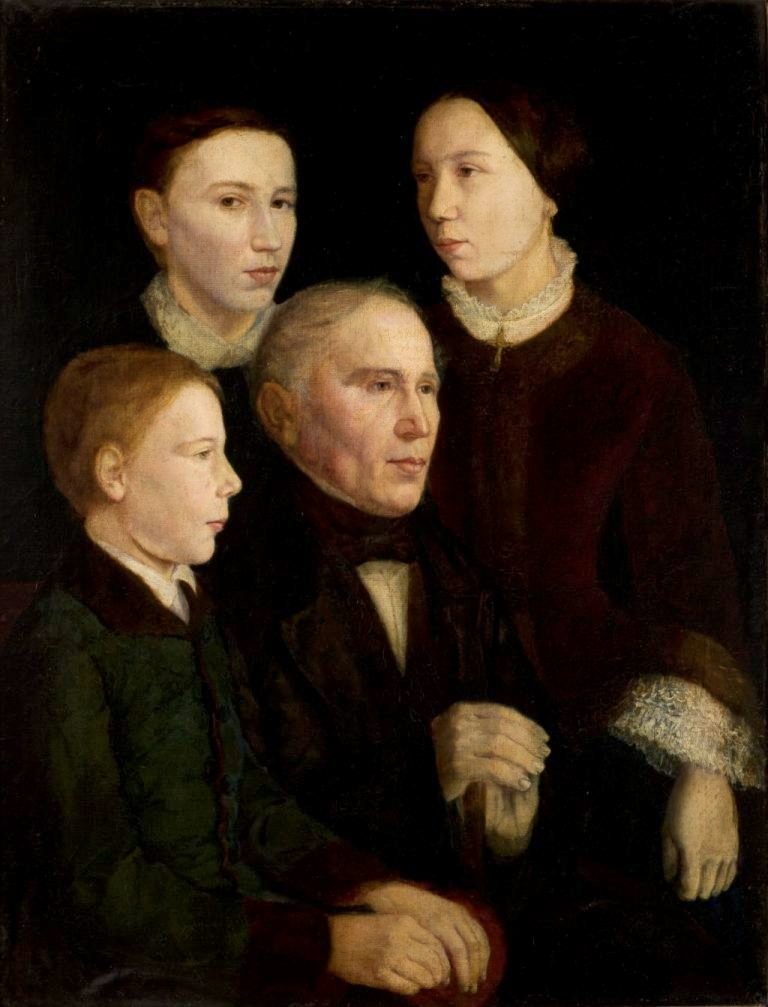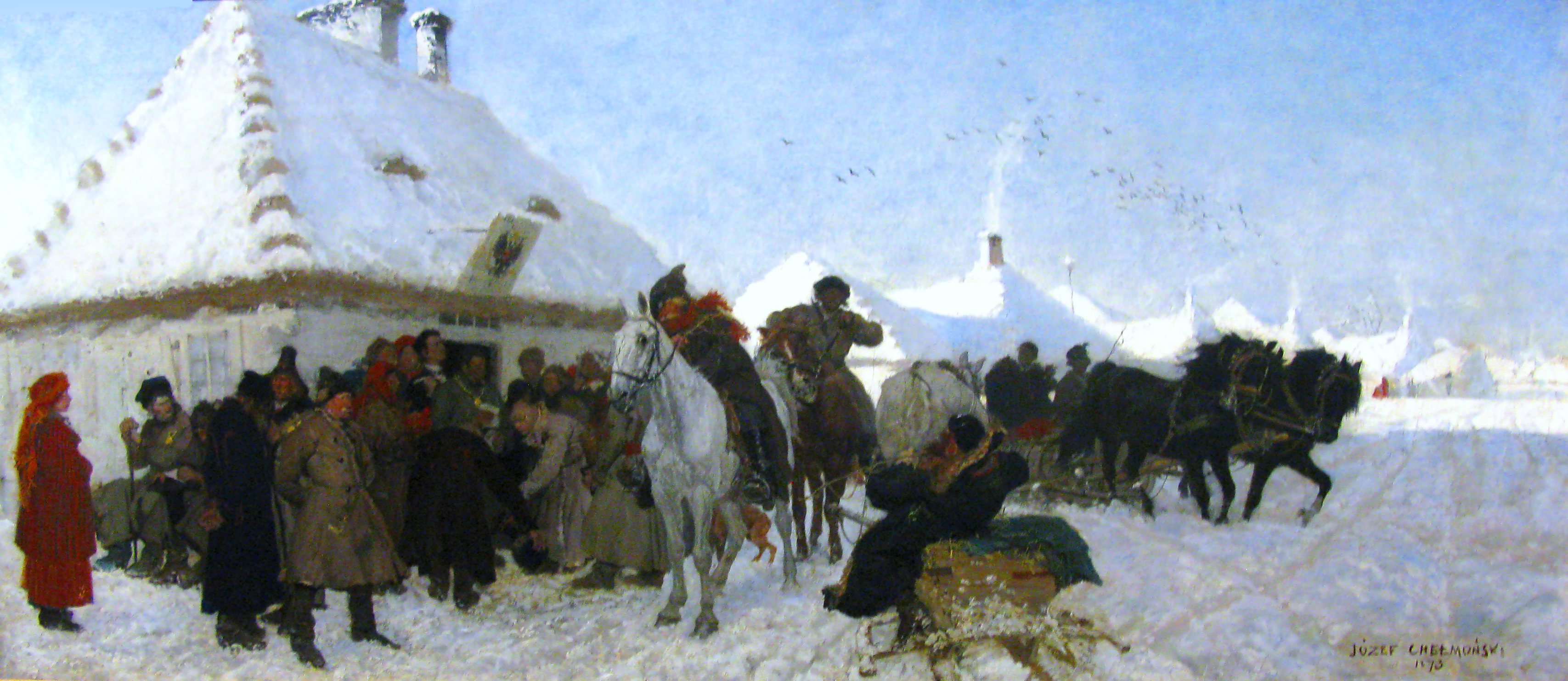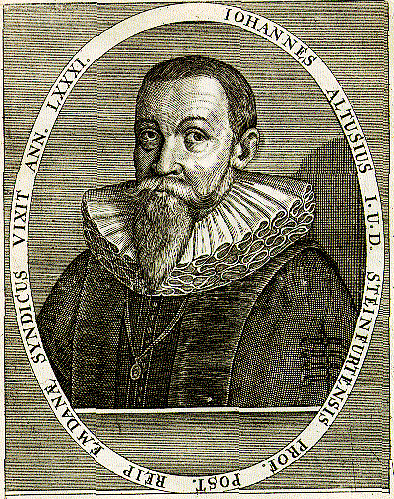|
Andrzej Frycz Modrzewski
Andrzej Frycz Modrzewski ( la, Andreas Fricius Modrevius) (ca.1503 – autumn 1572) was a Polish Renaissance scholar, humanist and theologian, called "the father of Polish democracy". His book ''De Republica emendanda'' (''O poprawie Rzeczypospolitej'') was widely read and praised across most of Renaissance Europe, influencing thinkers such as Jean Bodin, Hugo Grotius and Johannes Althusius. Prof. dr hab. Edmund Kotarski "Andrzej FRYCZ Modrzewski (Fricius Modrevius)" with bibliography.''Virtual Library of Polish Literature.'' Retrieved September 28, 2011. Life Modrzewski was born in Wolbórz (also known as Woybor, Voibor, Woibor, Wojbor, Woyborz and Wolborz), near Piotrków Trybunalski, the son of Jakub Modrzewski (1477–1529). Modrzewski family belonged to the gentry (though some authors speak of impoverished nobility), bore Jastrzębiec coat of arms, and held the hereditary title of mayor (''wójt/vogt/advocatus'') of Wolbórz. After graduating from the Kraków Academy, he was ... [...More Info...] [...Related Items...] OR: [Wikipedia] [Google] [Baidu] |
Jan Matejko
Jan Alojzy Matejko (; also known as Jan Mateyko; 24 June 1838 – 1 November 1893) was a Poles, Polish painting, painter, a leading 19th-century exponent of history painting, known for depicting nodal events from Polish history. His works include large scale oil on canvas, oil paintings such as ''Rejtan (painting), Rejtan'' (1866), ''the Unia lubelska (painting), Union of Lublin'' (1869), '' the Astronomer Copernicus, or Conversations with God'' (1873), or ''the Battle of Grunwald (painting), Battle of Grunwald'' (1878). He was the author of numerous portraits, a gallery of List of Polish monarchs, Polish monarchs in book form, and murals in St. Mary's Basilica, Kraków. He is considered by many as the most celebrated Polish painters, Polish painter, and sometimes as the "national painter" of Poland. Matejko was among the notable people to receive an unsolicited letter from the German philosopher Friedrich Nietzsche, as the latter tipped, in January 1889, into his psychotic break ... [...More Info...] [...Related Items...] OR: [Wikipedia] [Google] [Baidu] |
Wolbórz
Wolbórz is a town in Piotrków County, Łódź Voivodeship, in central Poland. It is the seat of the administrative district (gmina) called Gmina Wolbórz. It lies along National road 8, approximately north-east of Piotrków Trybunalski and south-east of the regional capital Łódź. Wolbórz has a population of 2,301, as of 2020. It was granted town charter in 1273, but was downgraded to a village in 1870 as a consequence of the January Uprising (1863–1864). It regained its city rights on 1 January 2011. History According to archaeologists, first human settlements appeared in today Wolbórz in c. 4000 BC. In early times of the Kingdom of Poland, Wolbórz emerged as a center of local administrative unit called opole, which was later turned into a castellany. In the 1120s, Wolbórz became one of seats of Bishops of Kuyavia. By that time, it already was an important trade center, which was confirmed in 1273, when Wolbórz was granted a town charter by Duke Leszek II the Black ... [...More Info...] [...Related Items...] OR: [Wikipedia] [Google] [Baidu] |
Jan Łaski (1456–1531)
Jan Łaski (1456 in Łask – 19 May 1531 in Kalisz, Poland) was a Polish nobleman, Grand Chancellor of the Crown (1503–10), diplomat, from 1490 secretary to Poland's King Casimir IV Jagiellon and from 1508 coadjutor to the Archbishop of Lwów. From 1510 Łaski was Archbishop of Gniezno and thus Primate of Poland. Biography He was the uncle of his namesake John à Lasco, the noted Protestant reformer, who helped reform the Church of England, and who was called home by King Sigismund II to effect similar reforms in the Commonwealth. John à Lasco is also famous for his achievement as an auto-didact.. Secretary to the Chancellor He became a priest, and in 1495 was secretary to the Polish chancellor Zawisza Kurozwęcki, in which position he acquired both influence and experience. The aged chancellor entrusted the sharp-witted young ecclesiastic with the conduct of several important missions. Twice, in 1495 and again in 1500, he was sent to Rome, and once on a special em ... [...More Info...] [...Related Items...] OR: [Wikipedia] [Google] [Baidu] |
Kraków Academy
The Jagiellonian University (Polish: ''Uniwersytet Jagielloński'', UJ) is a public research university in Kraków, Poland. Founded in 1364 by King Casimir III the Great, it is the oldest university in Poland and the 13th oldest university in continuous operation in the world. It is regarded as Poland's most prestigious academic institution. The university has been viewed as a guardian of Polish culture, particularly for continuing operations during the partitions of Poland and the two World Wars, as well as a significant contributor to the intellectual heritage of Europe. The campus of the Jagiellonian University is centrally located within the city of Kraków. The university consists of thirteen main faculties, in addition to three faculties composing the Collegium Medicum. It employs roughly 4,000 academics and provides education to more than 35,000 students who study in 166 fields. The main language of instruction is Polish, although around 30 degrees are offered in Engl ... [...More Info...] [...Related Items...] OR: [Wikipedia] [Google] [Baidu] |
Vogt
During the Middle Ages, an (sometimes given as modern English: advocate; German: ; French: ) was an office-holder who was legally delegated to perform some of the secular responsibilities of a major feudal lord, or for an institution such as an abbey. Many such positions developed, especially in the Holy Roman Empire. Typically, these evolved to include responsibility for aspects of the daily management of agricultural lands, villages and cities. In some regions, advocates were governors of large provinces, sometimes distinguished by terms such as (in German). While the term was eventually used to refer to many types of governorship and advocacy, one of the earliest and most important types of was the church advocate (). These were originally lay lords, who not only helped defend religious institutions in the secular world, but were also responsible for exercising lordly responsibilities within the church's lands, such as the handling of legal cases which might require the u ... [...More Info...] [...Related Items...] OR: [Wikipedia] [Google] [Baidu] |
Jastrzębiec Coat Of Arms
Jastrzębiec () is one of the most ancient Polish coat of arms. Dating back to the 10th century, it has been used by Poland's oldest szlachta families — Poland's Immemorial nobility — and remains in use today. History Legend of the coat of arms According to the Polish-Czech writer and heraldist Bartosz Paprocki, this coat of arms is called ''Jastrzebiec'' because the clan's pagan ancestors bore a Goshawk, or ''Jastrzab''. In the era of King Bolesław the Brave, circa 999, during a siege of the mountain fortress Łysa Góra – two miles from Bozecin, now called Swiety Krzyz ( Holy Cross) – the Christian besiegers were challenged by the pagan holders of the place, to "Send forth one from among you who is willing to fight for Christ, in a challenge against one of our men." Jastrzebczyk, a knightly member of the Jastrzebiec clan invented horseshoes that enabled his horse to climb the slippery slopes and to defeat and bring the pagan champion before the king. The rest of the ... [...More Info...] [...Related Items...] OR: [Wikipedia] [Google] [Baidu] |
Piotrków Trybunalski
Piotrków Trybunalski (; also known by #Etymology, alternative names), often simplified to Piotrków, is a city in central Poland with 71,252 inhabitants (2021). It is the second-largest city situated in the Łódź Voivodeship. Previously, it was the capital of an independent Piotrków Voivodeship (1975–1998); it is now the capital of Piotrków County. Founded in the late Middle Ages, Piotrków was once a Royal city in Poland, royal city and an important place in Polish history; the first Sejm of the Polish–Lithuanian Commonwealth, parliament sitting was held here in the 15th century. It then became the seat of a Crown Tribunal, the highest court of the Polish–Lithuanian Commonwealth. The city also hosted one of Poland's oldest History of Jews in Poland, Jewish communities, which was entirely destroyed by the Holocaust. The old town in Piotrków features many historical and architectural monuments, including tenements, churches, synagogues and the medieval Piotrków Trybuna ... [...More Info...] [...Related Items...] OR: [Wikipedia] [Google] [Baidu] |
Prof
Professor (commonly abbreviated as Prof.) is an academic rank at universities and other post-secondary education and research institutions in most countries. Literally, ''professor'' derives from Latin as a "person who professes". Professors are usually experts in their field and teachers of the highest rank. In most systems of academic ranks, "professor" as an unqualified title refers only to the most senior academic position, sometimes informally known as "full professor". In some countries and institutions, the word "professor" is also used in titles of lower ranks such as associate professor and assistant professor; this is particularly the case in the United States, where the unqualified word is also used colloquially to refer to associate and assistant professors as well. This usage would be considered incorrect among other academic communities. However, the otherwise unqualified title "Professor" designated with a capital letter nearly always refers to a full professor. ... [...More Info...] [...Related Items...] OR: [Wikipedia] [Google] [Baidu] |
Johannes Althusius
Johannes Althusius (1563 – August 12, 1638). was a German jurist and Calvinist political philosopher. He is best known for his 1603 work, ''"Politica Methodice Digesta, Atque Exemplis Sacris et Profanis Illustrata"''. revised editions were published in 1610 and 1614. The ideas expressed therein relate to the early development of federalism in the 16th and 17th centuries and the construction of subsidiarity. Biography Althusius was born in 1563, to a family of modest means in Diedenshausen, County Sayn-Wittgenstein ( Siegen-Wittgenstein), a Calvinist County in what is now the state of North Rhine Westphalia (but was then the seat of an independent ''Grafschaft'' or County). Under the patronage of a local count, he attended the Gymnasium Philippinum in Marburg from 1577 and began his studies in 1581, concentrating in law and philosophy. He first studied Aristotle in Cologne, then studied law around 1585/86 under Denis Godefroy at Basel.Johannes Althusius, On Law and Power'. CLP ... [...More Info...] [...Related Items...] OR: [Wikipedia] [Google] [Baidu] |
Hugo Grotius
Hugo Grotius (; 10 April 1583 – 28 August 1645), also known as Huig de Groot () and Hugo de Groot (), was a Dutch humanist, diplomat, lawyer, theologian, jurist, poet and playwright. A teenage intellectual prodigy, he was born in Delft and studied at Leiden University. He was imprisoned in Loevestein Castle for his involvement in the intra-Calvinist disputes of the Dutch Republic, but escaped hidden in a chest of books that was transported to Gorinchem. Grotius wrote most of his major works in exile in France. Hugo Grotius was a major figure in the fields of philosophy, political theory and law during the 16th and 17th centuries. Along with the earlier works of Francisco de Vitoria and Alberico Gentili, he laid the foundations for international law, based on natural law in its Protestant side. Two of his books have had a lasting impact in the field of international law: ''De jure belli ac pacis'' 'On the Law of War and Peace''dedicated to Louis XIII of France and the '' ... [...More Info...] [...Related Items...] OR: [Wikipedia] [Google] [Baidu] |
Renaissance
The Renaissance ( , ) , from , with the same meanings. is a period in European history marking the transition from the Middle Ages to modernity and covering the 15th and 16th centuries, characterized by an effort to revive and surpass ideas and achievements of classical antiquity. It occurred after the Crisis of the Late Middle Ages and was associated with great social change. In addition to the standard periodization, proponents of a "long Renaissance" may put its beginning in the 14th century and its end in the 17th century. The traditional view focuses more on the early modern aspects of the Renaissance and argues that it was a break from the past, but many historians today focus more on its medieval aspects and argue that it was an extension of the Middle Ages. However, the beginnings of the period – the early Renaissance of the 15th century and the Italian Proto-Renaissance from around 1250 or 1300 – overlap considerably with the Late Middle Ages, conventionally da ... [...More Info...] [...Related Items...] OR: [Wikipedia] [Google] [Baidu] |
Democracy
Democracy (From grc, δημοκρατία, dēmokratía, ''dēmos'' 'people' and ''kratos'' 'rule') is a form of government in which the people have the authority to deliberate and decide legislation (" direct democracy"), or to choose governing officials to do so ("representative democracy"). Who is considered part of "the people" and how authority is shared among or delegated by the people has changed over time and at different rates in different countries. Features of democracy often include freedom of assembly, association, property rights, freedom of religion and speech, inclusiveness and equality, citizenship, consent of the governed, voting rights, freedom from unwarranted governmental deprivation of the right to life and liberty, and minority rights. The notion of democracy has evolved over time considerably. Throughout history, one can find evidence of direct democracy, in which communities make decisions through popular assembly. Today, the dominant form of ... [...More Info...] [...Related Items...] OR: [Wikipedia] [Google] [Baidu] |

.jpg)




